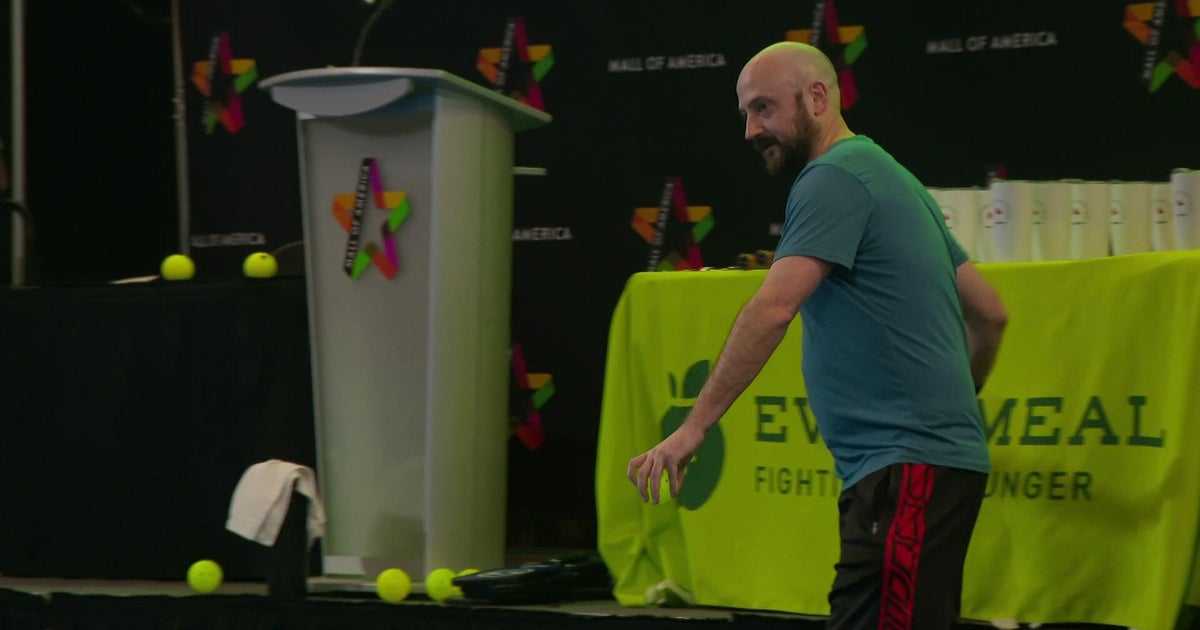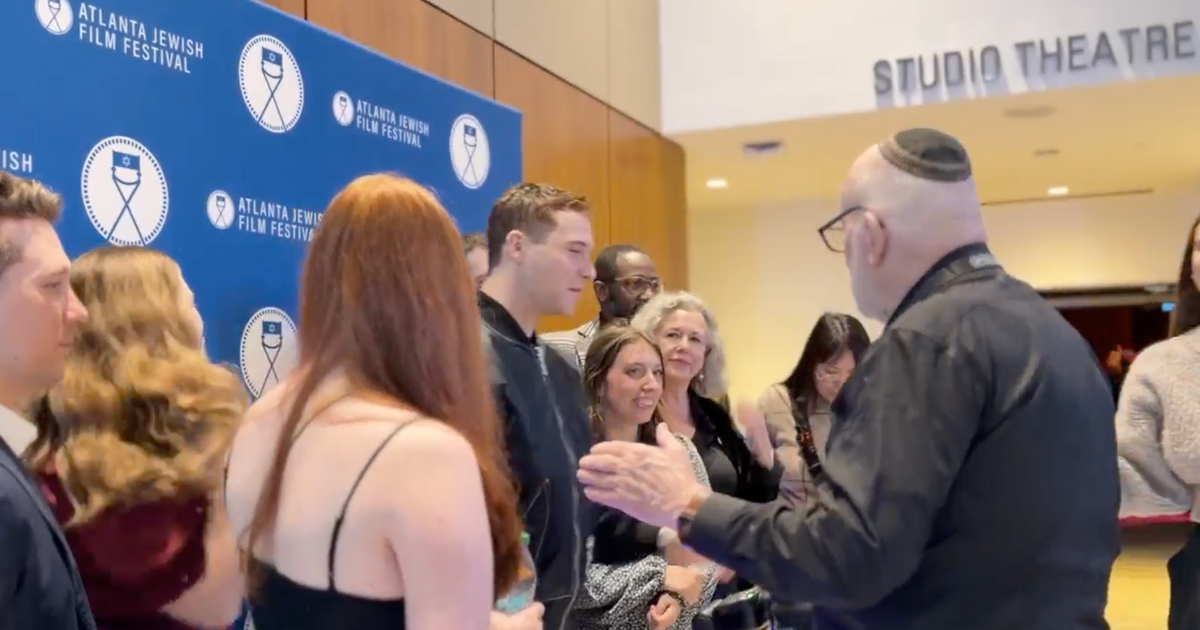The Wardrobe Wizard of 'Wicked' Is Revealed
NEW YORK (CBS SF/AP) - If you're overwhelmed by the laundry piling up and the sheer amount of stuff that needs sewing, consider what faces Alyce Gilbert every week.
Dozens of her dresses need checking or mending. Endless seams and zippers must be restitched. Her ball gowns have tears and hundreds of her shoes are scuffed. And laundry? She's overseen almost 25,000 loads in the past 10 years.
"It's a gig that takes a lot of hours," Gilbert says.
She's the production wardrobe supervisor of the hit Broadway show "Wicked" and one of the reasons the show is celebrating its 10th anniversary this week. Keeping wardrobe malfunctions to a minimum is her job.
"Wicked" first ran in San Francisco at the Curran Theatre in May 2003. After completing it's Pre-Broadway SHN tryouts, the show premiered on Broadway at the Gershwin Theatre in October 2003.
Gilbert and more than a dozen staffers are responsible for ensuring designer Susan Hilferty's Tony Award-winning costumes keep their pop despite wear and tear, getting new costumes fitted for a revolving door of actors and overseeing repairs and cleaning.
During a recent visit, monkey wings needed to be fitted for a handmade jacket and someone was replacing an underskirt. "Abrasion is a big thing for us. Lots of fabrics rub against each other," she explained.
Gilbert, a Milwaukee native, is a calm and protective presence in the wardrobe room. On her left lapel is a button with the word "whining" and a diagonal line through it. Front and center is the honorary Tony she won in 2007.
The shelves are piled with clear plastic bins - some are labeled "Scary Guard Gloves" or "Men's Foam Insoles" - and there are at least six tubs of shoelaces. Several sturdy washing machines and dryers are in the back of the windowless room, though many items are sent to a dry cleaner.
She just returned from a trip to Mexico to help ensure "Wicked" made a thrilling debut in Mexico City. "It's interesting to see it develop in a different situation," she says. "It still looks like `Wicked.'"
Producer David Stone commends Gilbert and the show's director, choreographer, musical supervisor and designers and all their associates for constantly checking on productions worldwide - there are currently nine versions - and ensuring all are up to snuff.
"For a show to be at the height of its reach 10 years in is unusual, to say the least," he says. "They go all around the world constantly checking in on the show and keeping it in top shape. That's why the show still feels fresh."
He credits the musical's coming-of-age story about the witches in "The Wizard of Oz" - not to mention killer songs by Stephen Schwartz and the lush costumes - with being able to transcend language boundaries. "This is really built on a strong, strong story," he says.
Gilbert, whose credits include the original productions of "A Chorus Line" and "Dreamgirls," has been with "Wicked" since its out-of-town tryouts in San Francisco in 2003. She's the link to how the first show looked and she knows the dangers of some fabrics and the ways they can be tamed.
"A lot of the techniques on some of these things are techniques that have almost disappeared from commercial dressmaking," she says. "Costume shops have preserved some of these techniques."
Her days begin at 9:30 a.m. with work on any damage to the costumes the night before. She oversees 12 dressers as well as her assistants who toil by hand and on sewing machines. Gilbert usually stays until the last song - often past 11 p.m. - six days a week.
"It takes a lot," she says. "There's a lot involved in keeping it going."
Among the more jaw-dropping items in her realm are several versions of Glinda's iconic bubble dress, which has 64 petals and 25 different kinds of sequins.
"It's the dress that little girls draw when they draw a princess," says Gilbert, who has watched the dress evolve from one based on a Christian Dior evening gown into something Cinderella would adore.
"Over the years it's always been, `It should be bigger! It should be fluffier! It should be bluer,'" she says. "And now it's gotten probably as big, fluffy and blue as it can get."
Her staff's expertise is needed when beading shears off, straps on shoes fail or when actresses get pregnant and need more room in their outfits. They prepare all the costumes for the understudies in case they need to go on. If an item isn't on hand, she'll run to a 10,000-square-foot storage facility on 8th Avenue.
It takes two weeks for an actor to prepare for a role, but it often takes much more time to make the costume, sometimes forcing designers to chop up existing ones. "That's always a horrifying moment when you're doing that because you know it's never going to be the same when you put it back," she says.
Few in the audience will be aware of what goes on in the wardrobe room, and Gilbert is perfectly happy about it. She doesn't need a bow.
"That's fine. It's about the story they're telling," she says, waving at the costumes. "All of this is a big help to telling the story. But it isn't necessarily the story."
(TM and © Copyright 2013 CBS San Francisco and its relevant subsidiaries. CBS RADIO and EYE Logo TM and Copyright 2013 CBS Broadcasting Inc. Used under license. All Rights Reserved. This material may not be published, broadcast, rewritten, or redistributed. The Associated Press contributed to this report.)







